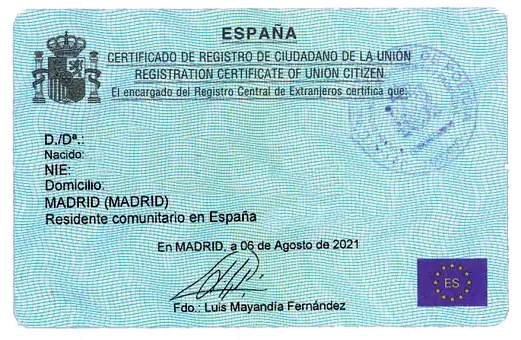
The end for Squatters in Spain?
Nov-24
A new amendment to the law regarding squatters in Spain (known as ‘okupas’) looks set to make life more difficult for these criminals, for whom Spain is something of a utopia. But it’s no thanks to the ruling socialists and due in part to a voting mistake by two other political parties
The current situation for squatters in Spain
At present squatters in Spain can break into and occupy your house and, if you’re lucky, the legal system will take 9 months to get them out. In the meantime, in addition to having strangers in your property, you must pay their utility bills! Yes, you read that correctly. You cannot ‘cut them off’ or YOU may be prosecuted. How much gas, water and electricity do you think your new ‘guests’ will use each month, knowing that you are paying, and given their scant regard for your welfare so far? Well yes, exactly!
It is true that if you act before Okupas have been in your residence for 48 hours, you may be able to speed up the process, depending on the workload of the relevant local courts. However, squatters in Spain are a canny lot; they simply order a pizza to your place 48 hours before breaking in, grab the pizza and receipt on the doorstep, then break in 48 hours later. Then, the moment they break in, they already have ‘proof’ they’ve been living there for 48 hours!
What is more, if they have children in tow, the process is much slower, because social services will need to decide whether said children are deserving of additional protections. In Barcelona province (which had the highest number of Okupa cases in Spain in 2023, with 4610 properties affected, compared to 1,516 in second placed Madrid) stories abound of professional Okupas ‘occupying’ properties, using borrowed children to slow down the process, and even having the nerve to rent the properties out to law abiding tenants who think they are renting from the owner.
Given this ludicrous situation, affected owners have increasingly turned to shadowy anti-Okupa groups to help reach the parts lawmakers cannot. However, this involves paying several thousand euros to the groups, who usually then recommend paying the Okupas to leave, meaning you pay a hefty sum twice. Rumours have even circulated of certain ‘anti Okupa’ groups actually being part of the same gang as ‘Okupas’ so they can get a double payday!

Changes in the law for squatters in Spain
Given the nightmare situation for property owners, one would think Spanish lawmakers would be falling over themselves to correct an obvious wrong. Especially since aspects of the current situation (paying Okupas’ utility bills for them, for example) serve to make Spanish law a laughing stock in the international community. But strangely, this has not been the case. And even now, when you read about the new amendment to the law, bear in mind that the ruling socialist party voted against it, whilst some Basque and Catalan nationalists (Bildu and ERC respectively) only voted for it ‘by mistake’. Bildu even felt it necessary to apologise to its voters for such an ‘unforgivable error’.
The bill itself was presented by mainstream Basque nationalists PNV, and supported by the mainstream Spanish conservatives the PP, along with various other parties (Ciudadanos, UPN and Junts). It was actively opposed by the ruling socialists, along with Sumar, Podemos and BGN. Right leaning populists Vox abstained. The bill proposes adding the laws relating to the illegal occupation of property to what is known in Spain as ‘el procedimiento abreviado’; also known as ‘juicios rápidos’. This means that if someone occupies your property, the police have 72 hours to refer the case to the courts. A magistrate then has 15 days in which to hear the case, and a decision must be made within 3 days of the hearing. In other words, an order to have the illegal usurpers removed from your property may take less than a month, rather than the current 9-12 months.
Limitations of the changes
The new law will apply to those cases where people break in to your property in order to occupy it. Unfortunately, most cases of ‘Okupas’ in the Barcelona region are what is known as ‘inquiokupas’; that is, tenants who began by legally residing in your property but then stopped paying. The old law for dealing with these cases will still apply. Plus, even in the case of ‘break in Okupas’, if they have minors in tow, social services will still need to be involved, and this will still slow the process down.
Timing of the changes for squatters in Spain
The text of the new law is already in the Senate. The Senate has two months to debate it, and then approve, reject, or send it back for further amendments. However, the PP has an absolute majority in the Senate, so it is expected it will be approved without any issues. Once it has been published in the BOE, (the official government gazette) it will come into effect. It is likely therefore that the amendment will be in practice within a maximum of 2 months from now.
So, the amendment has its limits. Plus, many people would argue that Okupas should face the same consequences as bank robbers; i.e. immediate arrest….by gun toting police. But even if it doesn’t spell a comprehensive end for an activity that has caused misery and great expense to thousands of law abiding citizens, it surely heralds the beginning of the end.
© Spain for English Speakers 2024

The dreaded okupas/ squatters in Spain: The end in sight?
The end for Squatters in Spain? Nov-24 A new amendment to the law regarding

Residency in Spain for EU citizens: our easy to follow guide
Residency in Spain for EU Citizens If you are an EU or EFTA citizen,

Move to Spain -practical information to help make your move to beautiful Spain easy
Move to Spain If you’re thinking about a move to Spain, there’s quite a

Visit Spain – all the information you need for an easy stay in this beautiful country
Visit Spain Use this page to guide you to the information you need On

EES Spain: Our easy to follow guide
EES Spain If you are wondering what the EES system is and how it

How to get the green NIE (Certificado de Registro) An easy to follow guide
Get your ‘Green NIE’ (Certificado de Registro) The Certificado de Registro de Ciudadano de
Share this page
